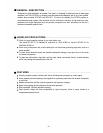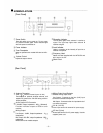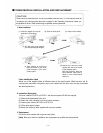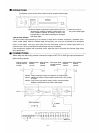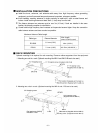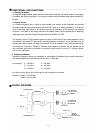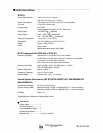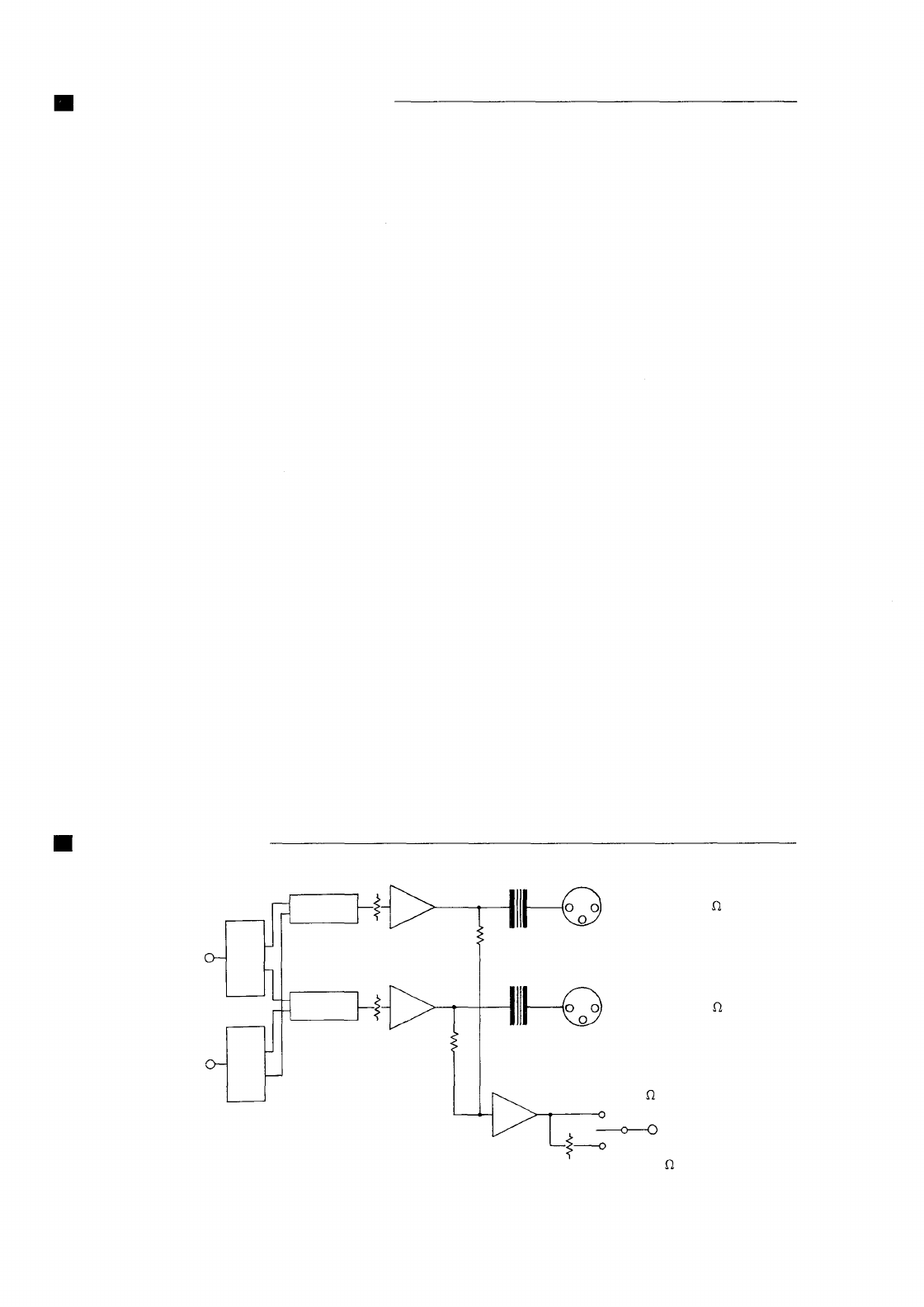
ADDITIONAL EXPLANATIONS
1. Diversity Reception
Conventional single-antenna system receivers have often produced "null spots" where a radio signal
is suddenly lost during its reception. The diversity reception method enables stable signal reception all
the time.
2. Squelch Circuit
In a receiver employing only a noise or carrier squelch, the squelch circuit is actuated and provides
the output whenever the receiver receives the same RF carrier as a receiving frequency. This causes
even a disturbing radio signal to be received provided its frequency is the same as the receiving
frequency. As a result, it can happen that sound is suddenly heard from the speaker due to disturbing
radio signal even when the wireless microphone's power switch is left OFF.
The squelch circuit of TOA's wireless systems consists of both the tone and noise squelches, and is
not actuated if only same RF carrier as the receiving frequency is received. It is so designed as to be
actuated and output a signal only when the received RF carrier contains a very exact pre-determined
tone frequency component. Therefore, disturbing radio signals are rejected and the speaker can be
kept completely quiet when the wireless microphone's power switch is set to OFF, ensuring reliable
use in every application.
3. Frequency Indicators
Component frequency ratings are expressed in combinations of alphabetic and numeric characters,
with letters substituted for all numbers to the left of the 1 MHz digit.
For example: C = 160 MHz F = 190 MHz
D = 170 MHz G = 200 MHz
E = 180 MHz H = 210 MHz
All numbers to the right of the 10 MHz digit are still expressed as numerals.
Therefore : D5432 = 175.432 MHz
G7654 = 207.654 MHz
BLOCK DIAGRAM
DISTRIBUTER 1
ANT.
IN
1
ANT.
IN
2
DISTRIBUTER 2
TUNER 1
TUNER 2
VR 1
VR 2
(XLR TYPE)
(XLR TYPE)
0
dBV,
10k
ATT.
– 60 dBV, 600
CH 1 OUTPUT
–60
dBV,
600
BALANCED
CH 2 OUTPUT
–60 dBV, 600
BALANCED
MIXED
OUTPUT
(Phone Jack)
– 7 –




